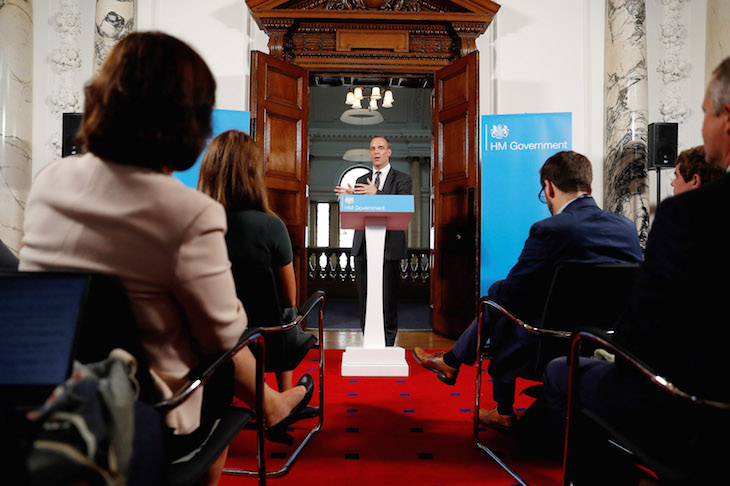The government was always onto a loser whether or not it published the 24 technical notices laying out what would happen in the event of a no-deal Brexit. If it didn’t publish them it would be accused of a cover up. If it did and they were terrifying it would provide ammunition for the Remain brigade. And if it published them and they weren’t terribly frightening? Then Remainers would accuse ministers of having their heads in the sand.
The latter scenario is pretty much where we are today. There are few stand-out headlines from the 24 documents for anti-Brexit commentators to get their teeth into. The Financial Times website has chosen to lead on the advice that businesses which export to or import from the EU ought to consider hiring a customs agent – given that goods imported or exported freely under the single market would in future require a customs declaration, and for tariffs to be paid. Customs agency might be a booming business in months to come – unemployed estate agents might even consider retraining. The Guardian’s website has picked out the warning that expat Britons living in the EU might temporarily lose access to UK bank accounts and might face higher charges when using cards abroad. Neither are quite apocalyptic.
There are a few other implications buried in the documents. Britons buying goods directly from EU websites may find themselves paying higher transaction charges – in the event of a no-deal Brexit they would no longer be protected by EU rules preventing businesses levying a surcharge for paying by an particular means (such as credit card). These rules were only recently introduced, however.
But apart from that? The no-deal ‘cliff edge’ which looms from these documents looks a lot less precipitous than the real one which stands over Dover harbour. Almost all EU rules will, initially at least, be simply rolled over into UK law if indeed they are not already incorporated into our law. When changes are made in future, it will be at leisure, not on 30 March next year. EU-regulated medicines will continue to be available for use in Britain. Organisations which rely on EU funding will be able to fall back on the government’s guarantee to underwrite the money until the end of 2020. Farming subsidies will continue to be paid until the end of this parliament, expected in 2022.
There is just one curious implication of a no-deal Brexit which certainly hadn’t occurred to me, and probably to very few people. While the regulation of the sale of tobacco will not change as a result of a no-deal Brexit, it turns out that the European Commission owns the copyright of the library of photographs of diseased lungs etc which appear on the packets. A no-deal Brexit might require the government, or cigarette manufacturers, to source some different photos – or maybe leave them off packets altogether.
That the Guardian’s first story on the technical notices picks this out as a potential problem speaks volumes. ‘A no-deal Brexit could mean no more photos of smokers’ lungs’ isn’t exactly going to make the hairs stand up on the back of anyone’s neck. There isn’t going to be a lot to support Project Fear from these documents. Just watch as Remainers turn instead to strategy two over the next few days: accusing the government’s planners of having their heads in the sand and failing to understand the true terror.







Comments